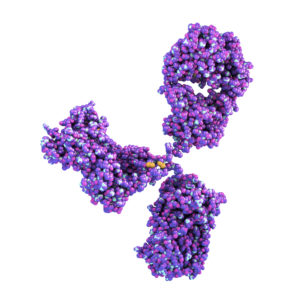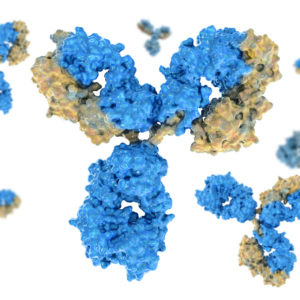Campylobacter
Campylobacter is the most common cause of food poisoning in both the UK and United States, with the great majority of cases occurring from infected poultry.
Our Campylobacter product range includes monoclonal antibodies for both for research applications and immunoassay development.
Campylobacter Background
The bacterial genus Campylobacter are non-spore forming, curved, gram-negative bacteria of the family Campylobacteriacae. Over twenty-five species of Campylobacter have been identified but approximately 90% of human disease is caused by Campylobacter jejuni. Infectious disease caused by pathogenic Campylobacter species is referred to as Campylobacteriosis. Other species of Campylobacter causing Campylobacteriosis include C. coli, C. lari and C. upsaliensis but cases are less frequently reported.
Birds, including poultry, are major reservoirs of C. jejuni, where the bacteria survive in the intestines and crop of healthy birds. Most reported outbreaks of Campylobacteriosis have been associated with the consumption of undercooked poultry or poultry products. Symptoms of infection generally include fever, abdominal cramps, watery or haemorrhagic diarrhoea and weight loss. Although the disease is self-limiting, complications may develop in some cases after infection, which include irritable bowel syndrome, Guillain Barre syndrome and other autoimmune neuropathies (CDC).
Campylobacter Antigens
The Native Antigen Company is pleased to offer a partially purified Campylobacter jejuni outer membrane protein, for diagnostic assay development and research purposes.
Campylobacter Antibodies
Our anti-Campylobacter jejuni monoclonal antibodies are specific for the detection of Campylobacter jejuni species and can be used as a pair in the development of immunoassays.
Our antibodies do not cross react with Helicobacter pylori, Escherichia coli, Salmonella enteriditis, Salmonella paratyphi, Salmonella typhi, Salmonella typhimurium, Shigella boydii, Shigella dysenteriae, Shigella flexneri, Shigella sonnei, Yersinia enterocolitica, Listeria monocytogenes or Staphylococcus aureus.
Questions?
Check out our FAQ section for answers to the most frequently asked questions about our website and company.



